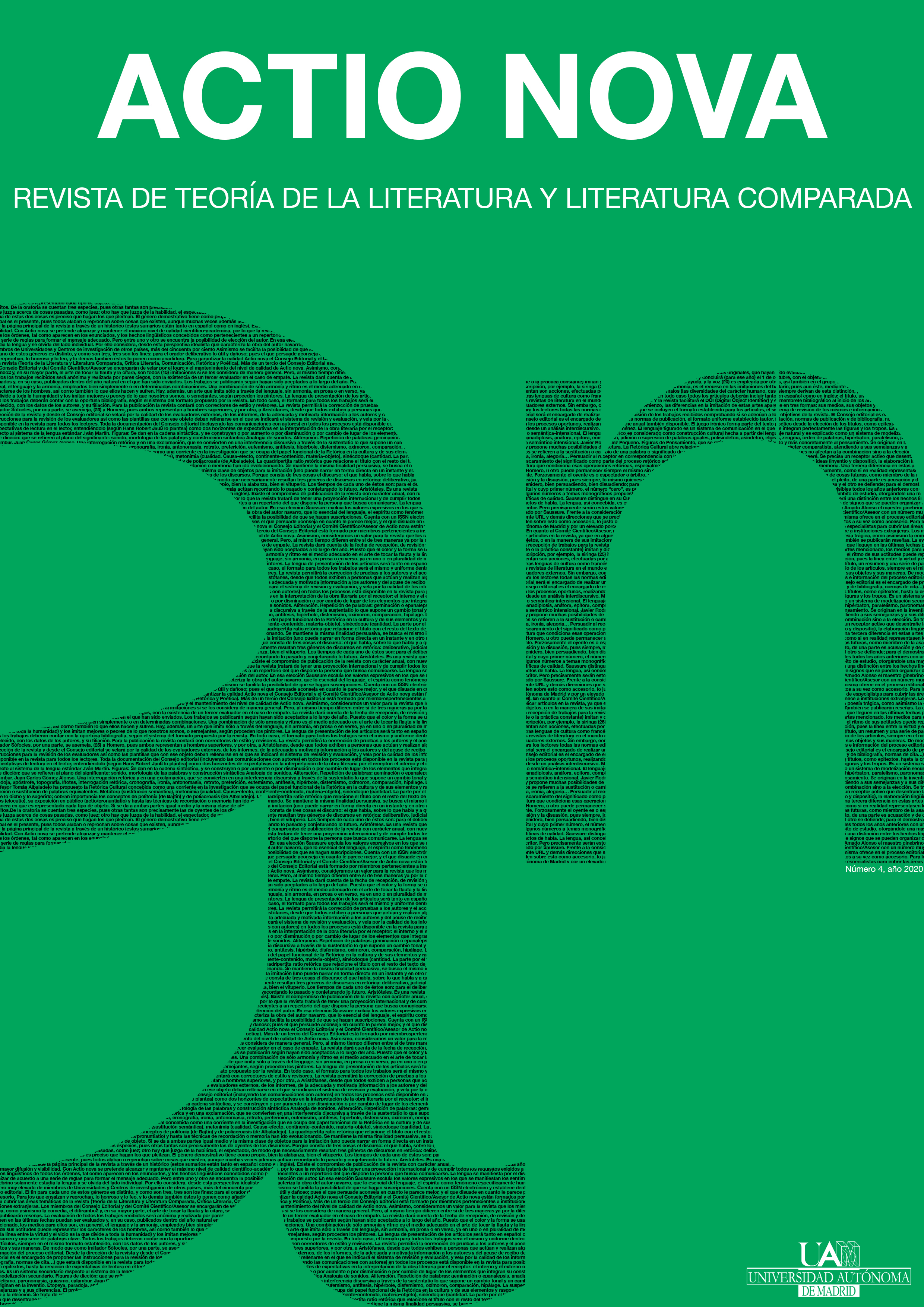Keywords:
post-humanism, epistemology, philosophy, literary theory, cinemaCopyright (c) 2020 Carlos Tello

This work is licensed under a Creative Commons Attribution-NonCommercial 3.0 Unported License.
Abstract
The present is a theoretical text interested in the arrival of post-humanism in the epistemological field in the last years of the 20th century. It talks about two critical speeches on humanism, the first by Friedrich Nietzsche and the second by Michel Foucault, to later find in the German philosopher Peter Sloterdijk's lecture, Rules for the Human Park, in 1997, a kind of birth certificate of post-humanism as a philosophical question. A definition of posthumanism is proposed below through six discourses that constitute a system, and that open up as an epistemological perspective for the study, mainly, of literature and cinema.
This article is the first of two, the second will be an analysis of literary and cinematographic works in light of these post-humanist discourses.
Keywords: post-humanism, epistemology, philosophy, literary theory, cinema.
Downloads
References
Atlan, Henri. (1999): «La biologie de demain n’est pas l’eugénisme nazi» [entretien], Le Monde des débats, novembre.
Audiberti, Jacques. (1955): L’Abhumanisme, Paris, Gallimard.
Besnier, Jean-Michel (2015): «Posthumain», en Gilbert Hottois, Jean-Noel Missa y Laurence Perbal (dir.), L’humain et ses préfixes. Encyclopédie du transhumanisme et du posthumanisme, Paris, Librairie Philosophique J. Vrin.
Borges, Jorge Luis (2019 [1941]): «Tlön, Uqbar, Orbis Tertius», en Cuentos completos, Barcelona, Lumen.
Cuvillier, Élian (1996 [1987]): L’Apocalypse… c’était demain. Protestations d’espérance au cœur du Nouveau Testament, Aubone, Éditions du Moulin.
Dozois, Gardner (1984): «Science Fiction in the Eighties», Washington Post, 30 de diciembre.
Foucault, Michel (2001 [1966]): «L’homme est-il mort? (entretien avec C. Bonnefoy)», en Dits et écrits 1954-1988, Paris, Gallimard.
Foucault, Michel (1968 [1966]): Las palabras y las cosas. Una arqueología de las ciencias humanas, traducido del francés (Les Mots et les Choses. Une archéologie des sciences humaines) por Elsa Cecilia Frost, Buenos Aires, Siglo XXI.
Habermas, Jürgen (2002): L’avenir de la nature humaine. Vers un eugénisme libéral?, traducido del alemán (Die Zukunft der menschlichen Natur. Auf dem Weg zu einer liberalen Eugenik?) par Christian Bouchindhomme, Paris, Gallimard.
Hottois, Gilbert, Jean-Noel Missa y Laurence Perbal (dir.) (2015): L’humain et ses préfixes. Encyclopédie du transhumanisme et du posthumanisme, Paris, Librairie Philosophique J. Vrin.
Kurzweil, Raymond (1999): The Age of Spiritual Machines, New York, Viking Press.
Latour, Bruno (1999): «Sloterdijk, l’insupportable», Le Monde des débats, novembre.
Latour, Bruno (1999): «Un nouveau Nietzsche», Le Monde des débats, novembre.
McLuhan, Marshall (1964): Understanding Media: The Extensions of Man, New York, McGraw Hill.
Michaud, Yves (2006): Humain, inhumain, trop humain. Réflexions sur les biotechnologies, la vie et la conservation de soi à partir de Peter Sloterdijk, Paris, Climats.
Nietzsche, Friedrich (2003 [1885]): Así habló Zaratustra. Un libro para todos y para nadie, traducido del alemán (Also Sprach Zarathoustra. Ein Buch für Alle und Keinen) por Andrés Sánchez Pascual, Madrid, Alianza Editorial.
Nietzsche, Friedrich (2005 [1873]): Sobre verdad y mentira en sentido extramoral, traducido del alemán (Über Warheit und Lüge im außermoralischen Sinn) por Luis Manuel Valdés Villanueva, Madrid, Tecnos.
Nietzsche, Friedrich (2012 [1872].): El nacimiento de la tragedia o Grecia y el pesimismo traducido del alemán (Die Geburt der Tragödie aus dem Geiste der Musik) por Andrés Sánchez Pascual, Madrid, Alianza Editorial.
Sloterdijk, Peter (2002): «Le scandaleux» [entrevista con Elisabeth Lévy], Journal Le Point, 14 février.
Sloterdijk, Peter (2006 [1999]): Normas para el parque humano. Una respuesta a la Carta sobre el humanismo de Heidegger [traducido del alemán (Regeln für den Menschenpark. Ein Antwortschreiben zu Heideggers Brief über den Humanismus) por Teresa Rocha Barco], Madrid, Siruela.
Updike, John (1999): «On the Edge of the Post-human. Night Train by Martin Amis. 147 pp. Jonathan Cape, 1997», en More Matter. Essays and criticism, London, Hamish Hamilton.
Van Oyen, Geert (2012): «Arrêt sur image(s) dans l’Apocalypse de Jean», en Arnaud Join-Lambert, Serge Goriely et Sébastien Fevry (dir.), L’imaginaire de l’apocalypse au cinéma, Paris, L’Harmattan.
Vinge, Vernor (1993): «Technological Singularity», en VISION-21, San Diego, San Diego State University. (https://mindstalk.net/vinge/vinge-sing.html) (último acceso: 4/5/2020).
Wolff, Francis (2010): Notre humanité, Paris, Fayard.
